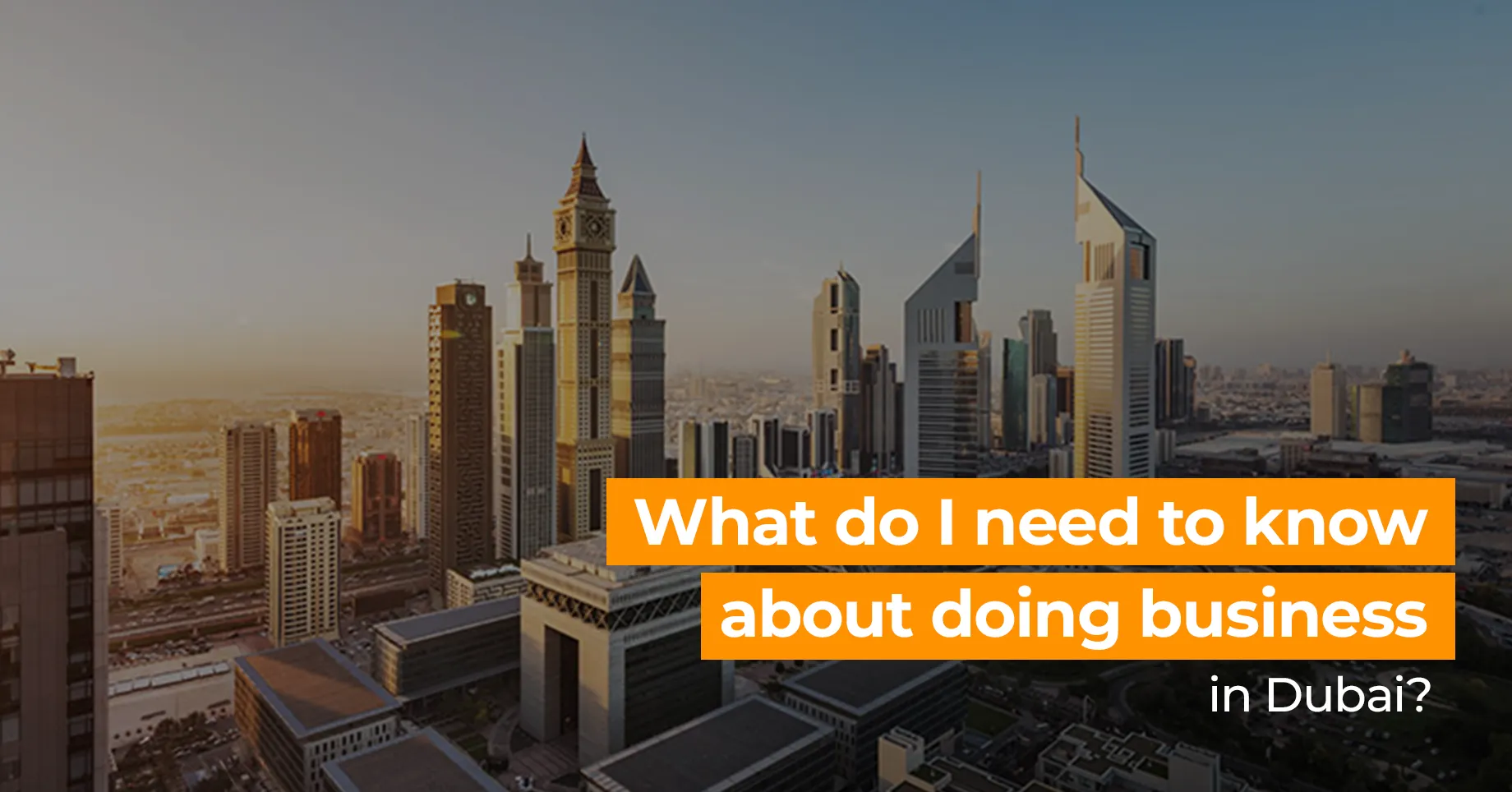Dubai, a key hub in the Middle East, attracts entrepreneurs and investors from around the world. As we navigate the bustling year of 2024, the city's business landscape continues to evolve, Offering a mix of exciting opportunities and complex challenges. This guide is designed to unravel the key elements you must gain the knowledge to start and succeed in a business in this lively city
1. Understanding the Dubai Business Environment
Dubai's business environment has a range of strategic advantages, cutting-edge infrastructure, and a regulatory framework carefully crafted to foster innovation and growth. Here’s what you need to consider:
Economic Stability: Dubai's economy, resilient and diversified, has pivoted away from oil dependence. Its thriving sectors now encompass tourism, technology, finance, and real estate. This economic stability provides a solid foundation for new ventures.
Regulatory Framework: The city offers a robust legal framework, designed to support a spectrum of business activities. The streamlined processes for company formation and operations are crafted to facilitate smooth business setups.
Free Zones vs. Mainland: Dubai offers a choice between setting up in one of its numerous free zones or on the mainland. Each option comes with its unique set of benefits and regulatory considerations, tailored to different business needs.
2. Key Considerations for Doing Business in Dubai
Successfully navigating the Dubai business environment involves understanding the local market dynamics and regulatory landscape:
Business Licensing: Securing the appropriate licenses for your business whether commercial, industrial, or professional is paramount. The type of license will depend on your business activity and location.
Local Partnerships: For many businesses, particularly those operating on the mainland, a local partner or sponsor is a necessity. This requirement ensures compliance with local laws and regulations.
Taxation and Financial Incentives: Dubai's tax landscape is notably favorable. Free zones offer 0% corporate and personal income taxes, among other financial incentives. Investors can also benefit from various subsidies and grants designed to encourage business growth.
3. Insights for Business in Dubai for Foreigners
For international entrepreneurs and investors, understanding the subtleties of local customs and legalities is essential:
Cultural Sensitivity: Navigating Dubai's business culture requires a keen awareness of local customs and etiquette. Building strong relationships and avoiding cultural missteps can pave the way for successful business interactions.
Employment Regulations: Adherence to local labor laws is crucial. This includes understanding visa requirements for foreign employees and integrating local hiring practices into your business strategy.
Market Research: Conducting thorough market research is essential. Tailoring your offerings to align with local preferences and needs will help in capturing and retaining the target market effectively.
4. Benefits and Challenges of Doing Business in UAE
When engaging in business across the UAE, it’s vital to balance the advantages with potential challenges:
Advantages:
-
Strategic Location: Dubai’s geographic positioning between East and West offers unparalleled access to a broad market.
-
Advanced Infrastructure: The city’s modern facilities and connectivity enhance business operations and logistics.
-
Supportive Government Policies: Dubai’s pro-business policies and initiatives are designed to foster investment and drive new ideas
Challenges:
-
Cultural Differences: Establishing a local presence and navigating cultural nuances can pose challenges for newcomers.
-
Regulatory Compliance: Adhering to local regulations and understanding the legal framework are critical for smooth operations.
5. Future Outlook and Trends
Dubai's business landscape is continually shifting, with several key trends shaping its future:
Technology Integration: The rise of smart technologies and digital transformation is revolutionizing business operations and customer interactions, creating new avenues for innovation.
Sustainability Initiatives: A pronounced focus on sustainability and green practices is driving investment in renewable energy and eco-friendly technologies.
Diversified Investment Opportunities: Dubai’s commitment to economic diversification opens doors to emerging opportunities in sectors such as fintech, healthcare, and education.
Conclusion
Embarking on a business venture in Dubai in 2024 presents a range of opportunities for those who are well-prepared. By comprehending the intricacies of the Dubai business environment, adhering to local regulations, and adapting to emerging market trends, you can navigate the complexities of establishing and expanding your business in this dynamic city. Whether you are an investor or an entrepreneur, leveraging Dubai’s unique advantages and staying attuned to evolving trends will set you on a path to success.
FAQs
Q1: What are the key factors to consider when doing business in Dubai?
A: Essential factors include understanding the local regulatory framework, choosing between free zones and mainland, securing the appropriate licenses, and adapting to local customs and business practices.
Q2: How can foreigners navigate the business environment in Dubai?
A: Foreigners should familiarize themselves with local regulations, consider local partnerships if necessary, and conduct comprehensive market research to tailor their business approach.
Q3: What are the advantages of doing business in the UAE?
A: Advantages include Dubai’s strategic location, advanced infrastructure, favorable tax regimes, and supportive government policies.
Q4: What challenges might one face when doing business in Dubai?
A: Challenges include navigating cultural differences, ensuring regulatory compliance, and adapting to a fast-paced and competitive market environment.
Q5: What future trends should investors be aware of when considering business investment in Dubai?
A: Key trends include increased technology integration, a focus on sustainability, and diversified investment opportunities in emerging sectors.
